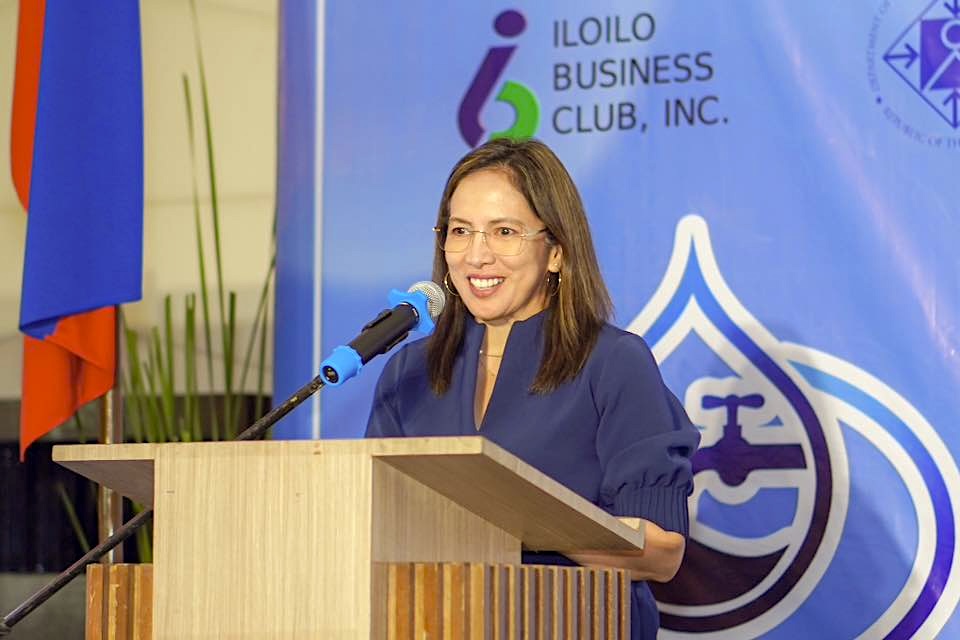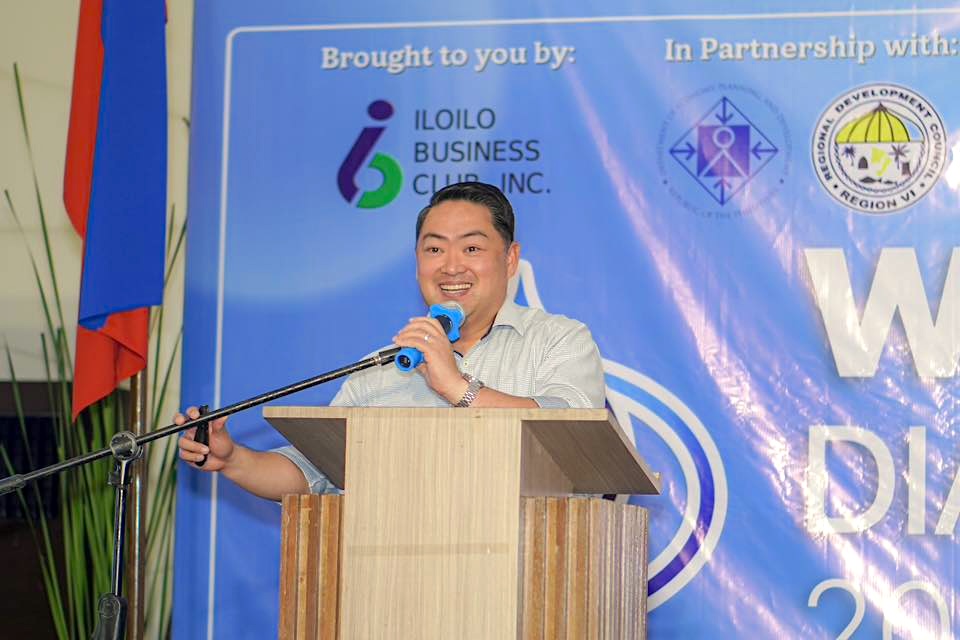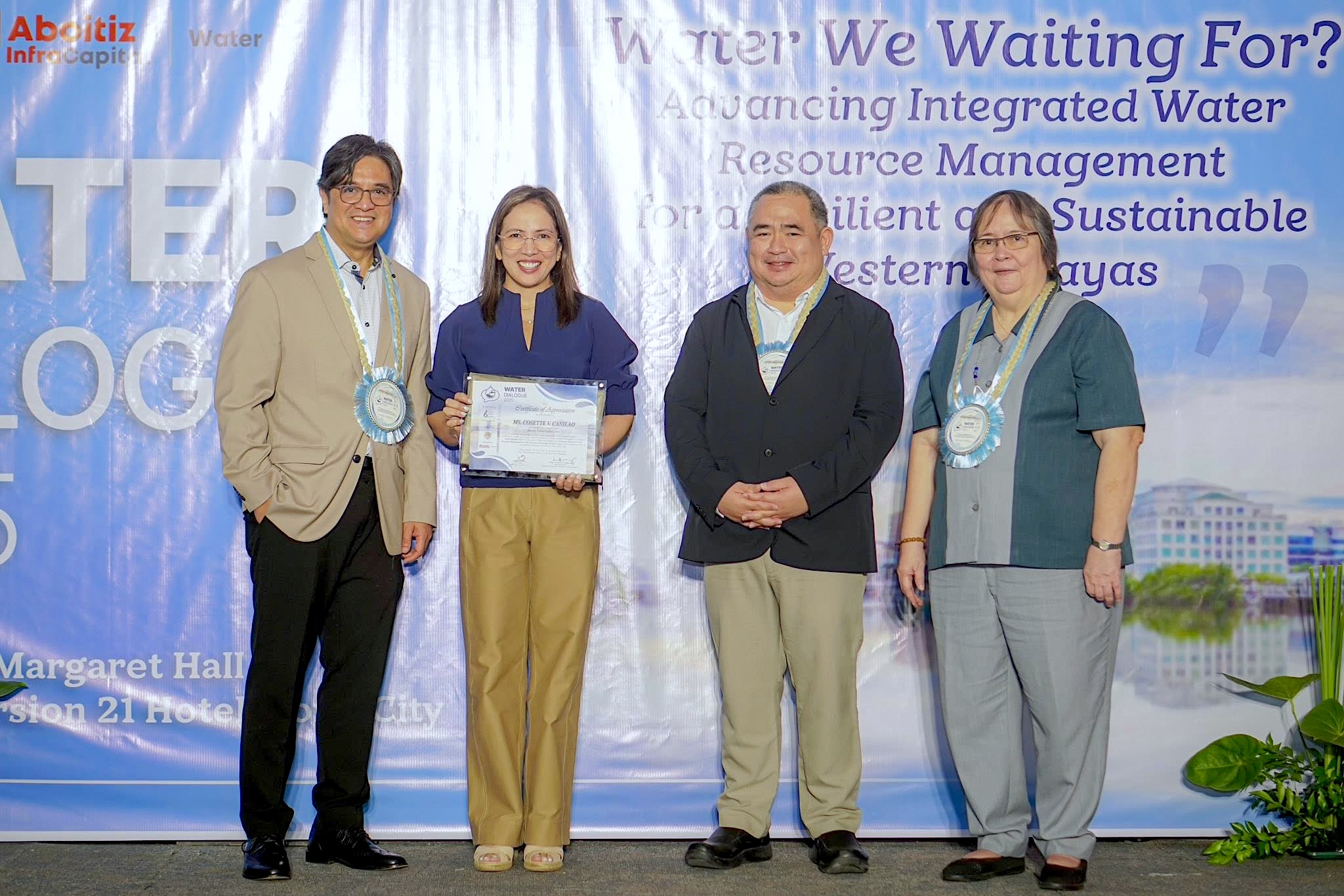ABOITIZ INFRACAPITAL BATS FOR URGENT WATER INVESTMENTS IN WESTERN VISAYAS. (From left) Iloilo Business Club (IBC) President Emil S. Diez, AIC President & CEO Cosette V. Canilao, DEPDev Region VI Director Engr. Arecio A. Casing, Jr., and IBC Vice President Ma. Luisa C. Segovia at the Water Dialogue in Iloilo City on June 19, 2025. In her speech, Canilao sounded off on the private sector’s call for collaboration and action to collectively and constructively address the region’s water woes.
As Western Visayas grapples with growing water insecurity amid rapid economic expansion, Aboitiz InfraCapital, Inc. (AIC) and its water subsidiary, Apo Agua Infrastructura, Inc., joined government leaders, business groups, and civil society in a critical dialogue on the future of water in the region at Water Dialogue 2025, held in Iloilo City on June 19, 2025.
Organized by the Iloilo Business Club in partnership with the Region VI Regional Development Council and co-presented by AIC, this year’s Water Dialogue carried the theme “Water We Waiting For? Advancing Integrated Water Resource Management for a Resilient and Sustainable Western Visayas.” The event aimed to foster knowledge-sharing and multi-sectoral collaboration on sustainable water management across the region.
AIC President and CEO Cosette V. Canilao joined the dialogue’s first plenary and called for swift and sustained action to future-proof Iloilo’s water infrastructure.
“Where water flows, progress follows. And if there’s one thing the present demands of us, it’s this—we must not wait,” Canilao said.

Canilao pointed to AIC’s success in Davao City through its subsidiary Apo Agua as a scalable solution. The Davao City Bulk Water Supply Project (DCBWSP), a partnership with the Davao City Water District (DCWD), delivers 300 million liters of potable water daily to over one million Davaoeños 24 hours a day.
Crucially, the project design separates bulk water production from distribution, where AIC handles the former while DCWD manages the latter. This clear division of responsibilities avoids conflicts of interest and enhances performance transparency in the country’s largest bulk water supply project, Canilao explained.
“This is not just innovation, this is governance. It’s a model that can work—not just in Davao, but in Iloilo, and beyond,” Canilao said, adding: “We must avoid dependency on any single provider. Redundancy builds resilience, and diversity improves quality and ensures highest service to the communities.”
In the water sector, fragmentation and blurred lines of responsibility often result in poor service delivery, and at worst, create conflicts of interest that erode accountability and compromise outcomes.
Canilao added: “The newly amended PPP (public-private partnership) law and its IRR (implementing rules and regulations) ensure that private partners are not merely middlemen, but investors that take on the risk of putting in capital and in delivering reliable service to the public.”


A Call for National-Local Alignment
While acknowledging the forward-looking efforts of the Iloilo City government—including its smart and resilient development plans and an active PPP Office—Canilao also emphasized that local government units cannot shoulder the burden of addressing the city’s water challenges.
“Water is very much needed, and we can only ensure the continuous growth and the continuous interest of investors if we have water. We need water not tomorrow—we need(ed) water yesterday. Water is very much needed,” said Iloilo City Mayor Jerry P. Treñas.
“Nagapati ako nga paagi sa partnership naton sa pribado nga sektor, we are investing in long-term solution for a water-secure future (I believe that through our partnership with the private sector, we are investing in a long-term solution for a water-secure future),” Mayor Treñas added.
In the province, almost half of Ilonggo households in Iloilo are unable to access clean water, revealed Iloilo Provincial Administrator Raul N. Banias (representing Iloilo Governor R. Arthur Defensor, Jr.). To remedy this, the province has allotted about P70 million for local rural water systems, Banias said.
Canilao appealed for stronger alignment between national agencies and local government units (LGUs), naming the National Water Resources Board, Department of Finance, PPP Center, and others as critical actors who must continue to work hand-in-hand with local governments to deliver the social contract of water security.
“Top-down and bottom-up must converge. The LGUs are closest to the ground. They understand—better than anyone—the urgent need of Ilonggos for sustainable, reliable, and safe water. Their insights are grounded in lived realities,” Canilao said.
This was echoed by Department of Economy, Planning, and Development Undersecretary Carlos Bernando O. Abad Santos, who remarked: “We should take advantage of opportunities for convergence, particularly in the private sector, to bridge infrastructure and service delivery gaps in the water sector.”
The Davao Model: A Blueprint for Iloilo
Meanwhile, during the Water Dialogue’s Lightning Talks round (“Innovations and Best Practices in Water Management and Sustainability”), Apo Agua General Manager Ronnie D. Lim discussed in detail how Apo Agua has drastically transformed Davao City’s water landscape via the DCBWSP.

“At Apo Agua, we believe that understanding the complexities of water, from source development to treatment to distribution, is key to forging strong partnerships with public and private stakeholders that can safeguard these critical resources for generations to come,” Lim said.
According to Lim, Apo Agua can successfully provide potable water to Davao City thanks largely to the DCBWSP’s water-energy nexus, where the same water used to generate power is itself treated and supplied to the DCWD’s water supply systems.
At present, the DCBWSP has significantly contributed to new service connections and the greater expansion of DCWD’s coverage to approximately 96% city-wide. Moreover, DCBWSP earned a near-perfect 99.6% customer satisfaction rating by end-2024—a testament to the project’s service quality.

